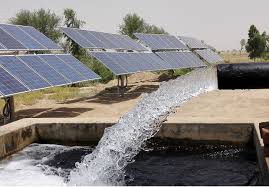Solar pumps have emerged as a game-changer in the field of agriculture, solar well pump bringing the power of renewable energy to the world’s farms. These innovative devices utilize the sun’s abundant energy to pump water, offering a sustainable and cost-effective solution to the age-old problem of irrigation. The marriage of solar technology with agriculture is not only reducing the carbon footprint but also significantly improving the lives of farmers worldwide.
Uninterrupted Water Supply
Traditional irrigation methods often rely on fossil fuels or electric pumps, which can be expensive and unreliable, especially in remote areas. Solar pumps, on the other hand, operate using solar panels that convert sunlight into electricity. This means that they can provide a consistent and uninterrupted water supply without the need for a grid connection or expensive fuel.
Environmentally Friendly
One of the most significant advantages of solar pumps is their environmental friendliness. They produce zero greenhouse gas emissions and reduce the reliance on fossil fuels, making them a sustainable choice for eco-conscious farmers. By harnessing the sun’s power, solar pumps not only reduce the carbon footprint but also mitigate the adverse effects of climate change by conserving energy and reducing pollution.
Economic Benefits
Solar pumps offer a lifeline to farmers by cutting down operational costs. They require minimal maintenance and have no recurring fuel expenses, reducing the financial burden on agricultural activities. In addition, government incentives and subsidies in many countries make the initial investment in solar pumps more accessible, further promoting their adoption.



